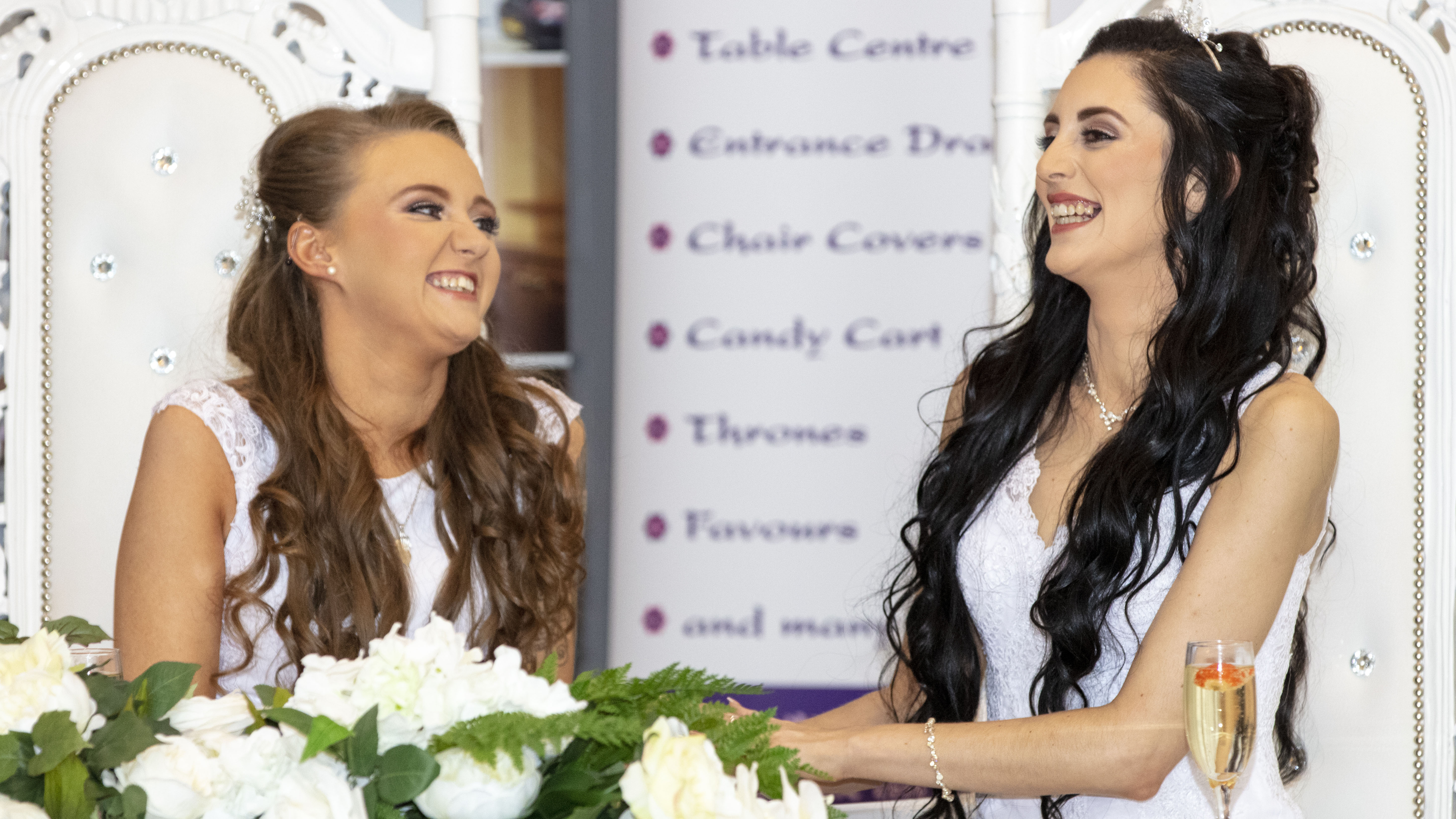02:28

The first same-sex marriage has taken place in Northern Ireland. Robyn Peoples, 26, and Sharni Edwards, 27, made history by becoming the first gay couple to tie the knot in a ceremony at a hotel in Carrickfergus, near Belfast, on Tuesday afternoon.
Same-sex marriage became legal in Northern Ireland on Monday. It has been legal in England, Wales and Scotland since 2014.
Speaking after the ceremony, Sharni Edwards, a waitress, said the pair initially booked a civil partnership at the hotel to mark their six-year anniversary but after the law changed last year, the couple turned the event into a wedding.
"We didn't expect to be the first couple, it was coincidental," she said. "When the bill was passed it was perfect timing, a complete coincidence but a happy coincidence. We are living the dream. It's surreal."
Robyn Peoples, a care worker from Belfast, said: "We are equal to a man and a woman, our love is just the same. It's no different.
"People might try and say it's not and this means everything to us, just to be married. This is my wife. I can finally say she is my wife... for Northern Ireland we need to be the faces to show people it's okay.
"We've fought so hard for this opportunity to be seen as equal and now we're here. It's amazing."
Robyn and Sharni's marriage comes after a landmark law change in the region initiated following the collapse of Northern Ireland's devolved government. In July 2019, MPs in London voted in an amendment requiring the British government to extend same-sex marriage rights to Northern Ireland if the region did not have a functioning assembly by 21 October last year.
That deadline passed, and beginning on 13 January couples have been able to register their intent to marry. At the same time strict laws surrounding abortion in Northern Ireland were also relaxed, meaning women and girls could terminate a pregnancy without fear of prosecution.
Previously abortion had only been permitted if a woman's life was at risk or there was a danger of serious or permanent damage to her physical or mental health. The move by Wesminster sparked controversy among conservative politicians in Stormont, Northern Ireland's parliament.
Previous bids to decriminalise abortion and legalise same-sex marriage had been blocked by the Democratic Unionist Party (DUP). The DUP claim the recent reforms have been imposed upon the region.
Gavin Boyd from LGBT campaign group The Rainbow Project says there is still work to do in Northern Ireland.
"We are a post-conflict society, that creates social conservatism, we have a large rural population and a lot of people who still attend weekly religious services, and all these factors come together to create significant barriers for LGBT equality," he said.
"We're very happy that the majority of our elected [officials] support LGBT equality but what we need going forward is government action to continue the progress we've made today. We still need to have conversions for people in civil partnerships introduced. People who have been in committed relationships for years still have to have the ability to convert that into a marriage.
"We also have to see regulations introduced for religious celebrants who want to conduct same-sex marriages to do that in Northern Ireland."